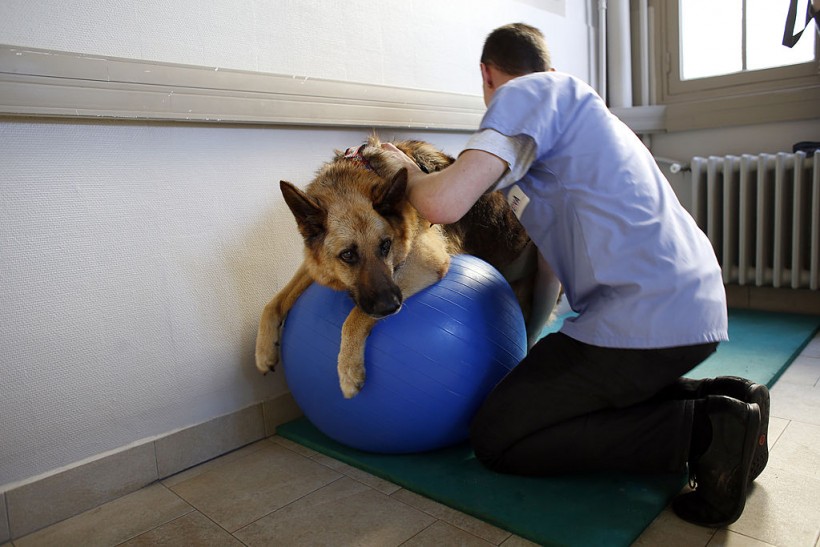Aging Dogs can develop dementia too, a recently published study on canine cognitive dysfunction specified.
A report from The Economic Times, in particular, said that while dogs can have the condition, it is frequently difficult to detect.
Will your dog get dementia? A new study found that the risk of canine cognitive dysfunction, or "doggy dementia," is far greater in dogs who don’t get enough exercise.
— The New York Times (@nytimes) August 27, 2022
Read this and 10 other stories handpicked for you by Times editors in The Weekender. https://t.co/cqby9zGqep
The study published this week revealed how common dementia is, particularly in dogs over 10 years of age.
Called "Doggy Dementia," this canine cognitive dysfunction is akin to Alzheimer's disease in humans, a progressive brain condition that occurs with cognitive and behavioral, among other changes.
ALSO READ: Sleep Study Reveals Wolves Can be Handled, Comforted Like Dogs

Dogs who have been recently operated on at the Paris-based Alforme animal re-education center of the National Veterinary Academy in Maisons-Alfort can undergo hydrotherapy or physiotherapy at the re-education center in order to gain their mobility back.
Behavioral Changes in Dogs
Essentially, it is generally spotted in dogs aged over eight years old, although it can occur in those as young as six years old.
Pet owners may consider a lot of behavioral changes as simply a normal part of aging. Therefore, it is possible there are more dogs with this condition than most people realize.
Moreover, veterinarians can find it difficult to diagnose canine cognitive dysfunction. There is no non-invasive, accurate test for it.
More so, just like humans, an aging dog is likely to have several other issues that can make the diagnosis more complicated.
Dog Dementia Signs to Look For
Dogs with dementia can frequently get lost in their own home or backyard. They can get stuck behind furniture or in corners of the room, as they're forgetting they have reverse gear. They tend to walk towards the hinge as well, of a door when attempting to go through.
Interactions of dogs with people, as well as other pets, can change. They may seek less or more affection from their owners than before, or begin to get grumpy with other pets in the home where they were previously happy housemates.
There are times too, that they even forget faces they have been familiar with all their lives. They potentially sleep more during the day as well, to be up more in the evening. Dogs may whine, bark, or pace apparently for no reason at all.
Comfort does not always soothe them, and even if their behavior is interrupted, it usually goes back pretty fast.
Sometimes, caring for an aging or senior dog with dementia is similar to having a puppy again, as it can start to toilet inside even though it is house-trained.
Dealing with Doggy Dementia
Certain medications can help alleviate the symptoms of doggy dementia to enhance the quality of life and make it easier to care for them. Therefore, for an individual who thinks his dog has the condition, it is best to consult a veterinarian.
According to The New York Times, exercise may play "a vital preventive role." The chances of diagnosing cognitive dysfunction were more than six times higher in dogs reported as inactive compared with those reported as very active, the University of Washington researchers discovered.
The team said though, that the disease itself could result in a "lack of exercise," underscoring that the study findings, which are based on pet owners' observations, suggest a correlation, instead of causation.
The chances of getting the disease also appear to rise in dogs with neurological disorders or impaired sight or hearing.
Commenting on their findings, Annette Fitzpatrick, a co-author of the study, published in the Scientific Reports journal, and a University of Washington research professor who has expertise in dementia in both humans and canines, said when one does not get stimulation from the outside world, it appears to increase the risk of one's incapability of using the brains, as well.
Related information about doggy dementia is shown on Out Pets Health's YouTube video below:
RELATED ARTICLE: Ancient DNA Including Wolves Preserved in the Permafrost Suggests Dog Domestication, Diversification Started 40,000 Years Ago
Check out more news and information on Dogs and Dementia in Science Times.














